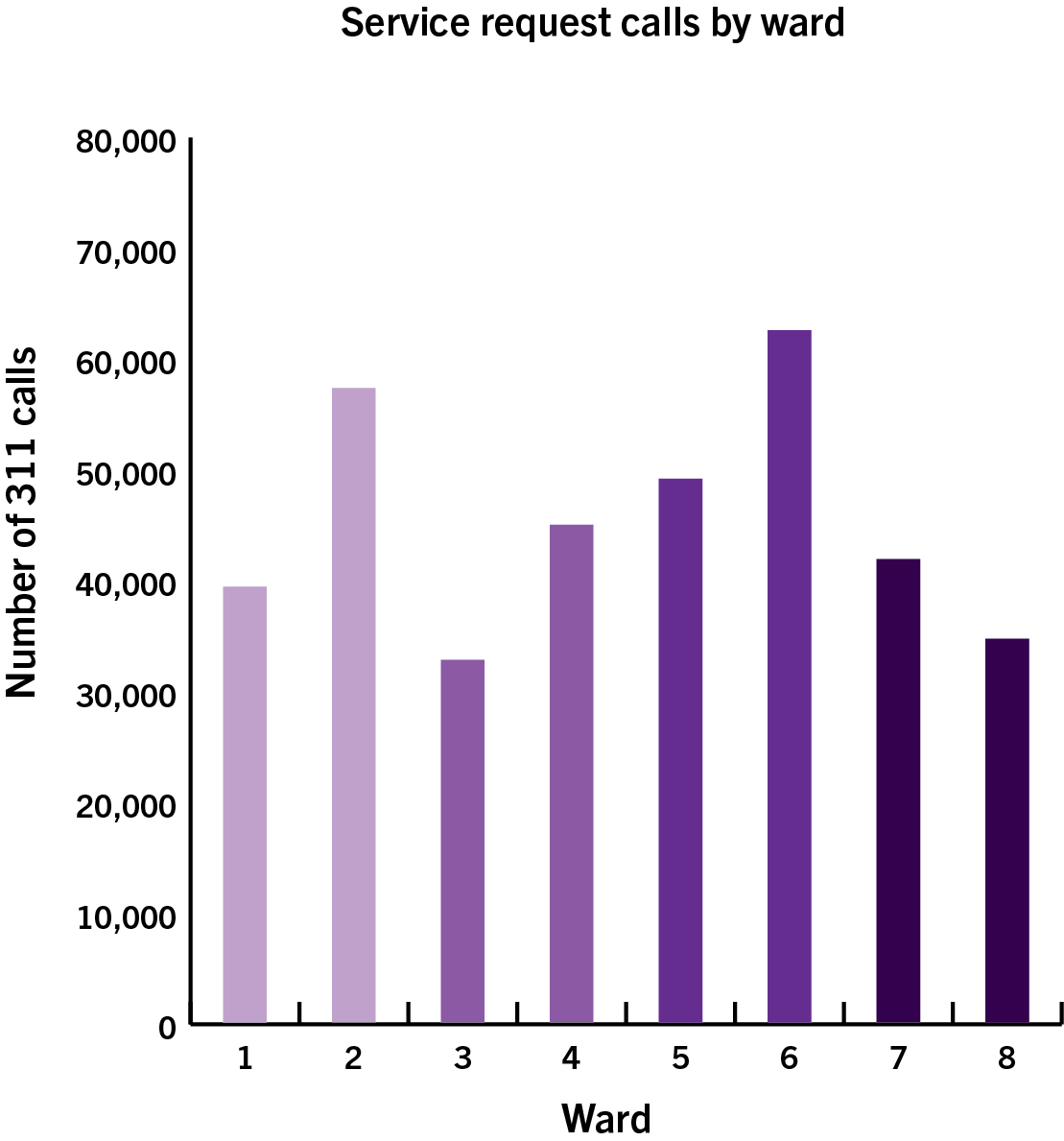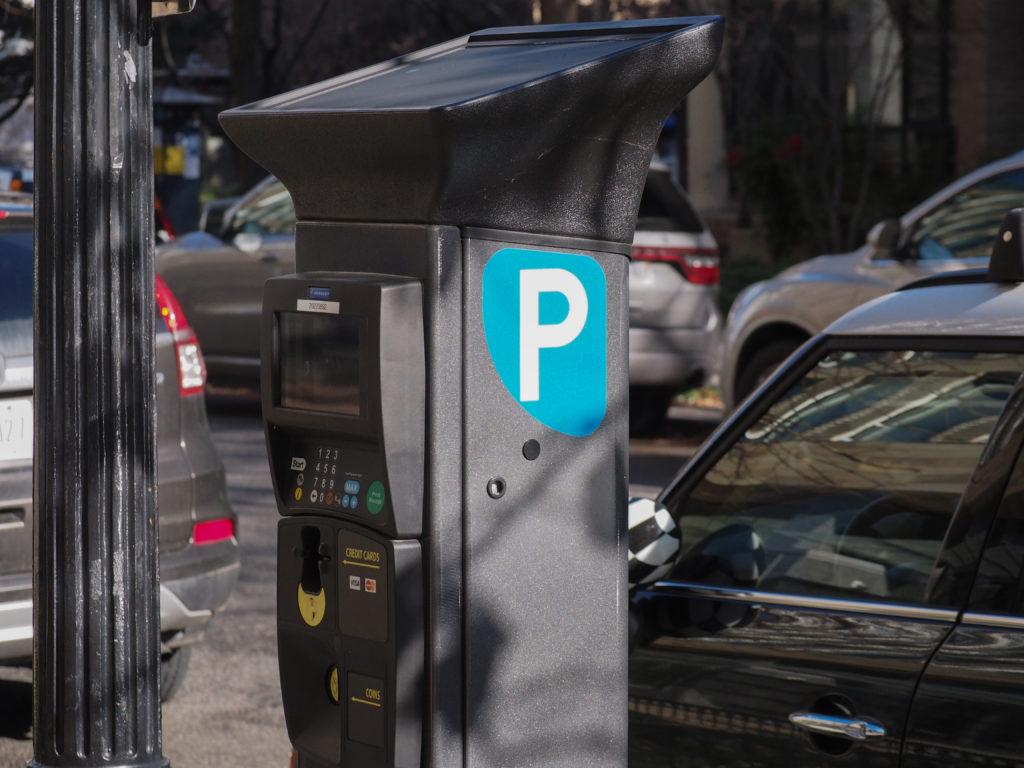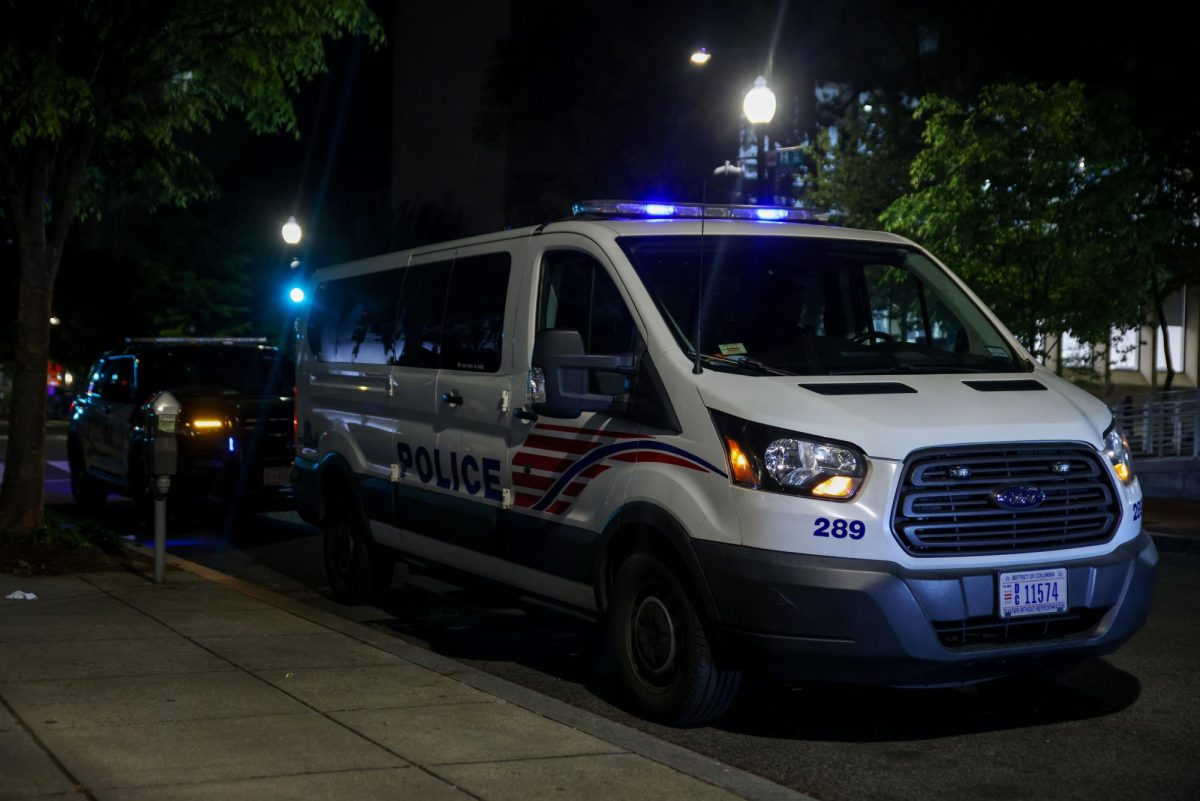Ward 2 logged the second highest number of 311 complaints across the District’s seven other wards in 2019, according to D.C. government data.
Residents living in Ward 2, which encompasses GW and much of downtown D.C., filed more than 57,000 city service requests through D.C.’s 311 line, which residents can call to request repairs to city infrastructure or services like trash and recycling collection. Wanda Gattison – a spokeswoman for the Office of Unified Communications, which handles 311 requests – said the ward’s service requests consisted mostly of parking meter requests.
She said requests from Ward 2 disproportionately concern parking meters largely because almost 60 percent of D.C.’s parking meters are located in the city’s central business district, which largely overlaps with Ward 2.
“Though many self-service methods are available, calling 311 is still the most popular option,” she said. “Last year, the agency handled 1.8 million 311 calls for service, generating over 700,000 requests for city services in all eight wards.”

Alyssa Ilaria | Graphics Editor
Ward 2 residents filed more than 20,000 city service requests for parking meter repairs last year, according to Open Data, a database that compiles D.C. government data. Requests in the other seven wards ranged from 385 in Ward 4 to about 4,500 in Ward 6, according to Open Data.
Parking meter repair requests also topped the list of 311 requests Foggy Bottom residents filed service requests for in 2017.
Marina Streznewski, the president of the Foggy Bottom Association, said many Foggy Bottom residents have filed 311 requests for rats, illegal parking, sidewalk repair and bulk trash collection. She said 311 requests vary in time that the issues are resolved.
“When you file a 311 request, you get a confirmation that gives a time frame – how long the agency has to complete the request,” Streznewski said in an email. “A sidewalk repair, for example, can take 270 days. So the District meets its goals, but the bar is set pretty low.”
Urban planning experts said Ward 2 may rank highest among other wards because the more privileged residents of the area may be accustomed to receiving higher quality government services.
Robert Shibley, the dean of the School of Architecture and Planning at the University at Buffalo, said Ward 2 may log a higher number of complaints relative to other wards because residents of wealthier parts of the city, like Ward 2, may be accustomed to higher quality public goods than residents of less privileged areas.
“There’s a high expectation based on the demographics of high levels of service,” Shibley said. “That is to say, more privileged communities might get large amounts of calls because they have an expectation of service that other groups have long since given up on trying.”
Annual median income for Ward 2 residents is about $105,000, the second-highest city-wide, according to the data. But Ward 3 residents, who boast the highest median income at about $136,000 a year, recorded the lowest number of complaints among the city’s eight wards.
Shibley said Ward 2 residents may file more city service requests for parking meter repairs than other wards because District officials may not have recently updated their parking meter protocol in the ward.
“311 calls can be all over the map,” he said. “But they are classifying a whole bunch of what you’re looking at as parking meter complaints – you couldn’t draw any conclusions from that unless you had some idea of how old that stock of meters might be.”
Elliot Sclar, a co-director of the Center for Sustainable Urban Development’s Earth Institute and a professor emeritus of urban planning at Columbia University, said high levels of 311 complaints could correlate with an area’s demographics.
“Sometimes there are differences because of discrimination,” Sclar said. “Sometimes there are differences because people expect more service than they’re getting, or the opposite.”
But he said Ward 3’s low number of overall city service requests could also indicate that the ward’s residents are “well taken care of” and may not need to request additional services from the District.
“Those who are economically better off are much more cognizant of what they’re entitled to, and they prefer not to suffer in silence,” he said.





